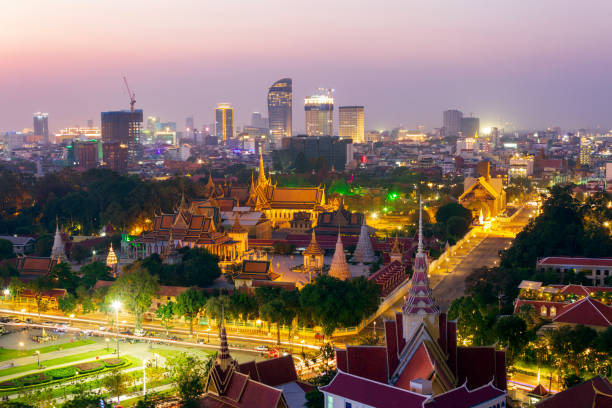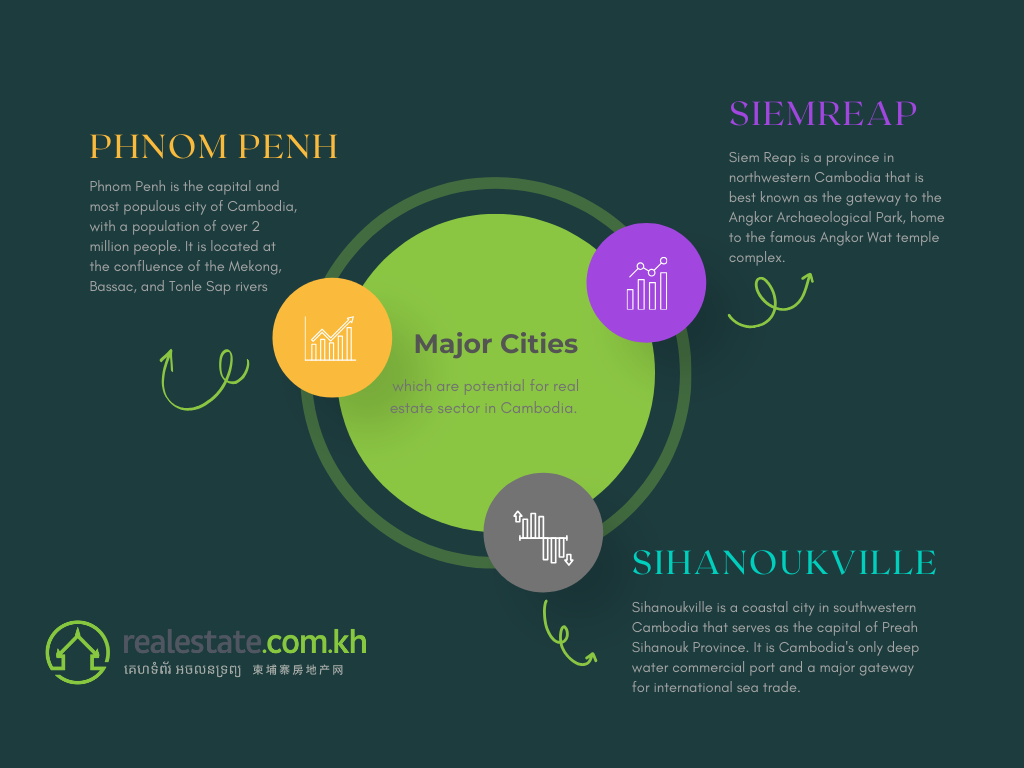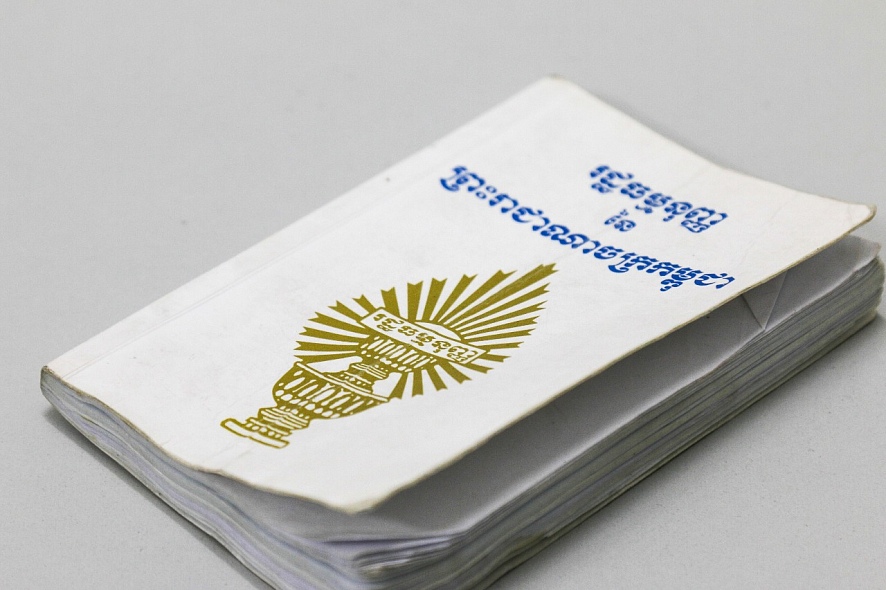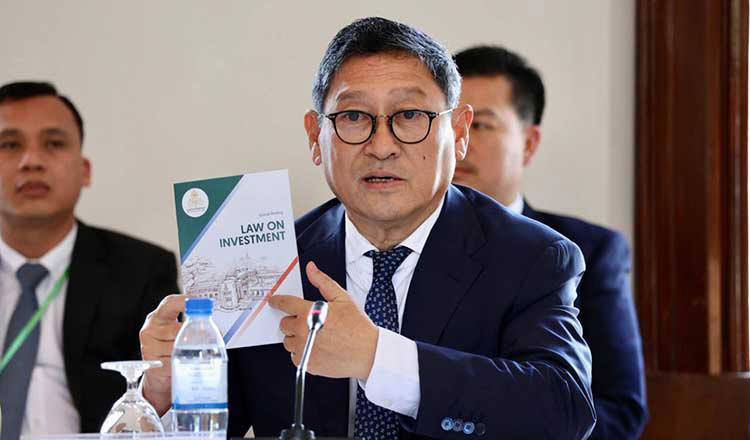Nestled away in the center of Southeast Asia, Cambodia has become a vibrant and alluring destination for international investors. With a youthful and expanding population, a thriving economy, and a rich cultural legacy, Cambodia presents an ideal environment for investment. Sharing borders with Thailand, Vietnam, and Laos, the nation's advantageous location serves as a gateway to the larger ASEAN market, which is home to more than 650 million people.

The economy of Cambodia has shifted from its agrarian roots to include thriving industries like textiles, tourism, construction, and real estate thanks to the government's strong promotion of foreign direct investment (FDI) through a variety of incentives. Navigating Cambodia's legal environment, especially its foreign ownership in Cambodia’s regulations, can be difficult despite the country's great potential.
These regulations place particular limits, particularly on foreigners' direct land ownership, in an effort to strike a balance between promoting investment and national interests. However, options like long-term leases and ownership of stratum titles provide foreign investors feasible paths.
Introduction to Cambodia's Investment Landscape
Over the past ten years, foreign investors have found Cambodia's investment landscape—particularly in the real estate sector—to be increasingly alluring. Together with a young and vibrant labor force, the nation's advantageous Southeast Asian position has accelerated economic expansion and urbanization. There is a real estate boom in major cities including Phnom Penh, Siem Reap, and Sihanoukville due to an increase in demand for residential, commercial, and industrial properties.

Through the implementation of investor-friendly regulations, such as the creation of Special Economic Zones (SEZs) and the streamlining of the business registration procedure, the Cambodian government has been instrumental in promoting this growth. Furthermore, by providing preferential market access, Cambodia's membership in regional trade agreements—most notably the ASEAN Economic Community (AEC)—improves its attractiveness. Despite these advantages, foreign investors must carefully navigate foreign ownership in Cambodia’s laws and requirements, which are distinct and can be complex.
For instance, while foreigners are allowed to own property in Cambodia, they cannot own land outright but can hold strata titles for properties above the ground floor. Understanding these legal nuances, including leasehold arrangements and investment incentives, is essential for mitigating risks and ensuring a smooth entry into Cambodia's vibrant real estate market. This foundational knowledge equips investors to capitalize on the opportunities while adhering to local regulations, thereby fostering sustainable growth and profitability.
Legal Framework for Foreign Ownership
The legal framework governing foreign ownership in Cambodia is primarily derived from the Cambodian Constitution, the Law on Investment (LoI), and the Land Law. Understanding these laws is essential for foreign investors seeking to establish a presence in the country.
The Cambodian Constitution

The Cambodian Constitution is the supreme law of the land. It plays a crucial role in shaping the country's real estate landscape. Article 58 of the Constitution establishes that land and other natural resources in Cambodia are considered state property, which has significant implications for foreign ownership. Article 44 further reinforces that "only natural persons or legal entities of Khmer nationality shall have the right to land ownership." This effectively prohibits foreign individuals and entities from directly owning land in the country.
However, the Constitution does allow for foreign investors to acquire land through long-term leases ranging from 15 to 50 years, as well as to own buildings and structures through locally incorporated companies where Cambodian nationals hold at least 51% ownership. These legal structures enable foreign investors to participate in Cambodia's real estate market while adhering to the constitutional restrictions on direct land ownership.
The Law on Investment (LoI)
The benefits and protections offered to foreign investors are outlined in the Law on Investment, which was first enacted in 2003 and revised in 2021. By providing security from state meddling, guarantees against nationalization, and the ability to transfer funds and earnings overseas, it seeks to foster an environment that is favorable to investment.

The main organization in charge of overseeing and promoting foreign investment in Cambodia is the Council for the Development of Cambodia (CDC), which is home to the Cambodian Investment Board (CIB). For investors, the CDC offers one-stop services that expedite the process of acquiring required permits and approvals.
The law itself aims to create an open, transparent, and favorable legal environment to attract both domestic and foreign investment. Specifically, the law provides important provisions related to real estate investments. It allows foreign investors to acquire long-term leases of up to 50 years, with the possibility of extension, to access land and property.
The Land Law
The Land Law of Cambodia, initially implemented in 2001 and subsequently modified, is the basis of the nation's real estate industry. The legislation defines the procedures for transferring and registering land and makes clear several forms of property rights, including as ownership, leases, and concessions.
Only citizens of Cambodia and legal companies with at least 51% Cambodian ownership are permitted to directly possess land under the Land Law. Nonetheless, foreign investors can purchase buildings and structures through locally incorporated firms and obtain long-term leases of up to 50 years.
The law also allows foreigners to own up to 70% of private units in co-owned buildings, such as condominiums, from the first floor up, excluding the ground and underground floors. The Land Law, along with the 2007 Civil Code and the 2011 Law on the Implementation of the Civil Code, forms the main legal framework governing real estate transactions in Cambodia.
At Last,
Foreign ownership in Cambodia laws present both opportunities and challenges for investors. While restrictions on land ownership and sector-specific regulations exist, the country offers a favorable investment climate with numerous incentives and protections. By understanding the legal framework and adopting best practices, foreign investors can successfully navigate the Cambodian market and capitalize on its growth potential.
FAQs
Can foreigners own land in Cambodia?
> No, foreign individuals and entities are not allowed to directly own land in Cambodia. However, they can acquire land through long-term leases (15–50 years) or by setting up a landholding company wherein Cambodian nationals hold at least 51% ownership.
What types of properties can foreigners own in Cambodia?
> Foreigners can own condominium units in Cambodia, provided that the total foreign ownership in the building does not exceed 70%. They can also hold leasehold properties for 15 to 50 years, with the possibility of extension.
How does the new Law on Investment affect foreign investors?
> The new Law on Investment aims to modernize Cambodia's investment environment by simplifying registration procedures, strengthening investor guarantees, and encouraging investments in strategic sectors. It offers incentives such as income tax exemption and customs duties incentives for qualified investment projects.
Will the reinforcement of foreign ownership laws be made retrospective?
> Based on precedents in other areas, there have been no retroactive penalties or nullification of sales for properties transferred into a foreigner's name. However, the future consequences for foreigners holding soft title properties in their own name remain unclear.
What is the process for foreigners to acquire property in Cambodia?
> The key steps include conducting due diligence, consulting with a lawyer, negotiating the purchase, signing the contract, making the payment, applying for property registration, paying taxes and fees, and obtaining the property title.




Comments